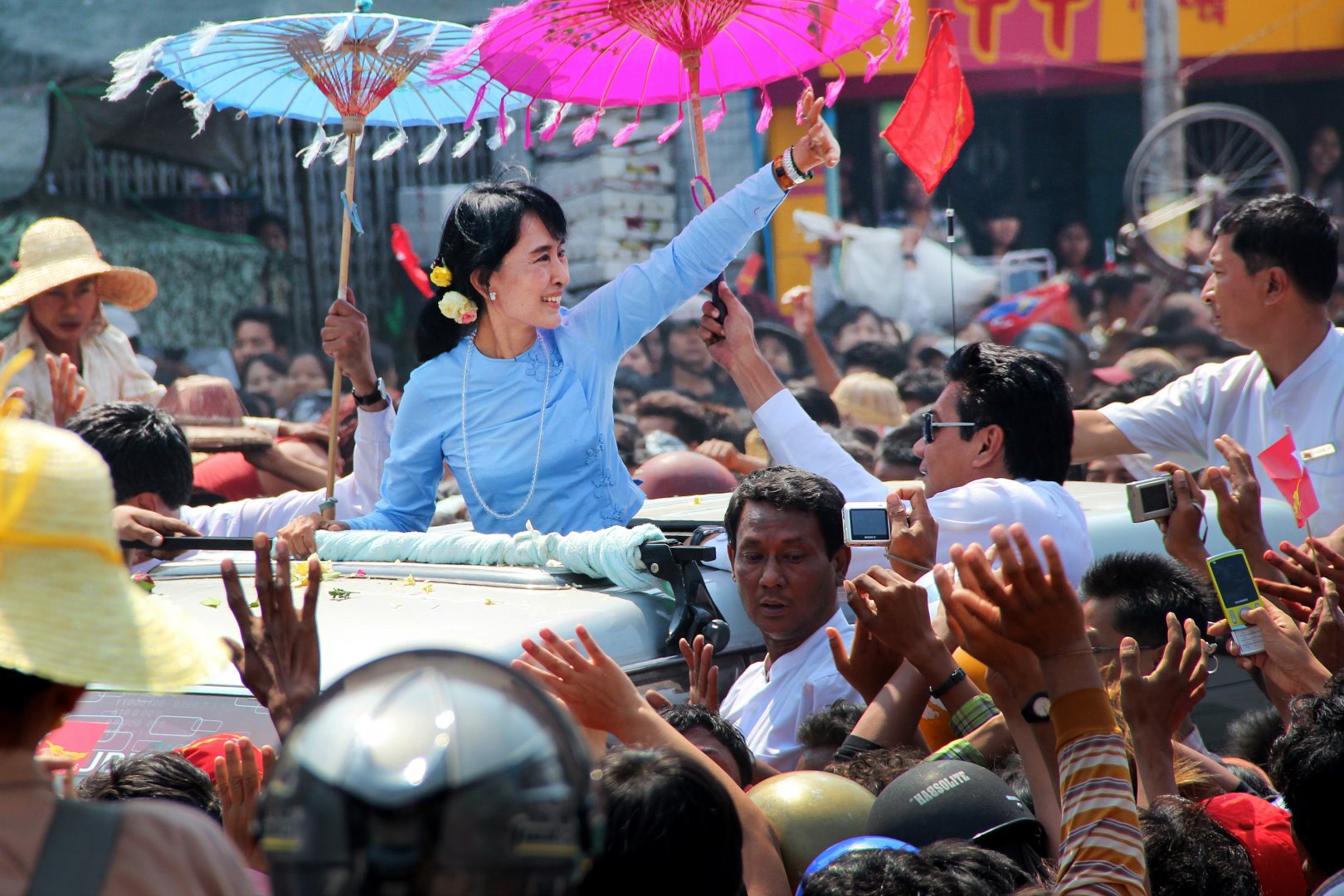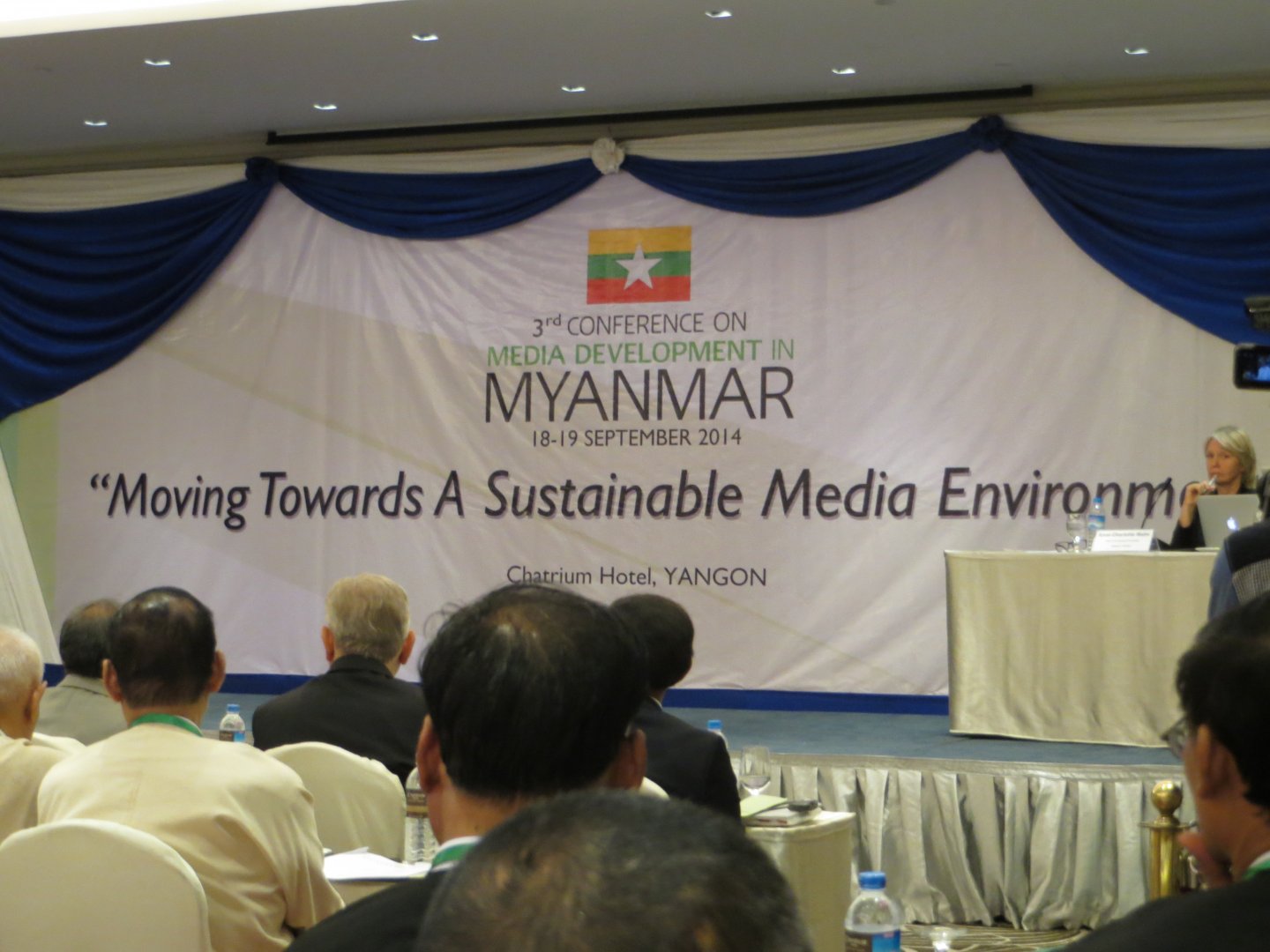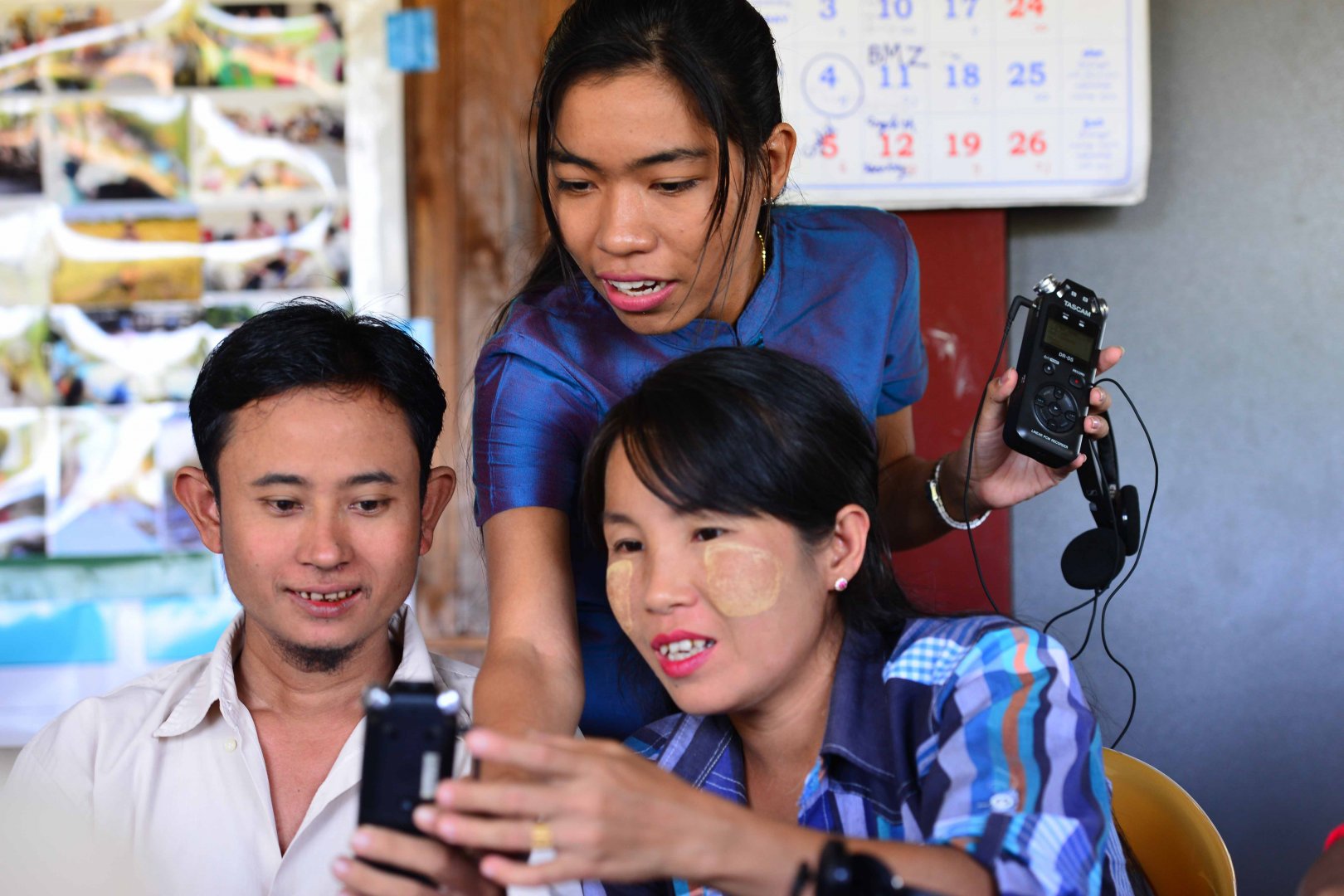
Myanmar: 15 years of media development from democratic reforms to the military coup and beyond
Myanmar went through historic changes and took important steps in its transition towards democratic governance and positive media development during a short time span.
Before 2010’s general elections, Myanmar had one of the world’s strictest censorship regimes. The only existing free and independent media worked in exile outside the country. IMS had been working for years with these exiled media and was thus well-placed to step in and support the needed reformation of an out-dated media sector at odds with the new democratic developments, when asked to do so by the transition government. Over the next few years, we were heavily involved in extensive and fundamental reforms to pave the way for free and independent media.
Following the 1 February 2021 military coup, Mynamar’s civil society has all but completely lost its hard won progress.
Here’s how media development has progressed over the last decade:
2008
The government adopts a new constitution in May. Despite the fact that the constitution allocates a quarter of seats in the parliament to the military, it is a landmark step in Myanmar’s democratic transition.
2010
The first general elections are held in November. The military-backed Union Solidarity and Development Party (USDP) claims victory but continues towards a path of democratic reforms.

2011
IMS (International Media Support), with support from the Danish, Swedish and Norwegian governments, is invited by the Myanmar government and Ministry of Information to assist in developing media development reforms.
2012
The censorship board is dissolved and pre-censorship abolished. As a result, Myanmar sees the arrival of more than 400 dailies, weeklies and monthlies in the media market before the end of 2013.
2014
The News Media Law creates an independent oversight body, the Myanmar Press Council, to regulate the news media. The government generally lightens its control over the media. The Press Council does not immediately meet international standards but nevertheless enables important steps for media development in the country. This is exemplified by developing a code of ethics for journalists, which is promoted across the country. Furthermore, three institutions open with support from IMS: Myanmar Journalism Institute – the first private journalism school in Myanmar – and Myanmar Journalist Network and Myanmar Journalist Association, which both work to defend media rights.

2015
On 8 November, Myanmar holds its first open national election in 25 years. Aung San Suu Kyi and the National League for Democracy (NLD) win a landslide victory mainly against the ex-military dominated USDP. Yet, with a guarantee of 25 percent of seats in Parliament and a therefore de facto veto over any constitutional amendments, the military remains in a position of power that makes it difficult for the civilian government to manoeuvre. The perception among many is that the country is ruled by two different, and often rivalling, governments – a civilian and a military.
2016
Where the transition government used media to accelerate democratic reform, the new democratically-elected government slows down on media development initiatives. The old military regime’s political and administrative systems are not easily transformed, and the new bureaucracy has little capacity for working through complex policy problems.
Simultaneously, social media, especially Facebook, are taking Myanmar by storm. The Facebook app comes pre-installed on new phones and many people in Myanmar understand Facebook to be the internet. The new platform provides a space for disseminating news and facilitating public debate, but due to low media and digital literacy levels, people in Myanmar are also vulnerable to widespread mis- and disinformation on the platform. At the same, Myanmar is in the midst of a peace process, and persistent ethnic tensions make the public vulnerable to hate speech.
2017
The escalation of violence in Rakhine in August develops into a major humanitarian crisis on the border between Bangladesh and Myanmar in what the UN termed a “textbook example of ethnic cleansing”. Later, several reports from the UN and Facebook itself found that widespread disinformation and hate speech on Facebook have been an enabling factor in the genocide. The lack of action and acknowledgement of the graveness of the situation by the NLD government and Aung San Suu Kyi creates an atmosphere of international disappointment.
2018-19
The NLD and Aung San Suu Kyi continue to hold strong positions as democratic icons within Myanmar, especially among the Bamar population, despite international criticism, an economic slowdown and continued ethnic tensions.
2020
The Covid-19 pandemic hits the world and both a first and second wave spread through Myanmar. The pandemic also results in an economic crisis in the country with devastating social consequences. Yet the country has a relatively small death toll of less than 3,000 total deaths by the end of the year. Many attribute the public health success during the pandemic to pandemic response measures installed by Aung San Suu Kyi and the NLD, which increases their national popularity.
In October, the Broadcasting Law, which establishes an independent Broadcast Council to regulate broadcasters and sets largely progressive standards for the sector, comes into place. The law is originally from 2015, but the implementing regulations were delayed.

Another democratic general election is held in Myanmar on 8 November. The election is well attended with 70 percent of voters defying the Covid-19 pandemic to go to the voting stations. It is another landslide victory for Aung San Suu Kyi and the NLD, who win 396 out of 476 seats in the parliament. The military-backed USDP wins only 33 seats.
2021
The military persistently allege voter fraud in the months after the 2020 General Election. On 1 February, they overthrow the government in an early morning coup – the same day the new parliament is supposed to meet for the first time. The military forces itself into public buildings and strengthens control of the media and information infrastructure. Throughout the year, independent media are forced to close and to relocate while more than 120 journalists are arrested.
2022
The military junta continues in power and keeps a tight grip on freedom of expression and the media. Independent media either work underground or have relocated to safe locations in the border areas, to Thailand or other countries from where they continue to produce news and information for the population. Large parts of the country are marked by conflict with resistance from ethnic armed organisations and defence forces. More than 1.5 million people remain internally displaced. The economy continues a downward spiral.
2023
The military junta is preparing for what will undoubtly be stage-managed elections later in the year with no real opportunities for opposition parties to participate. It is expected that restrictions on media will increase as the election date get closer.




